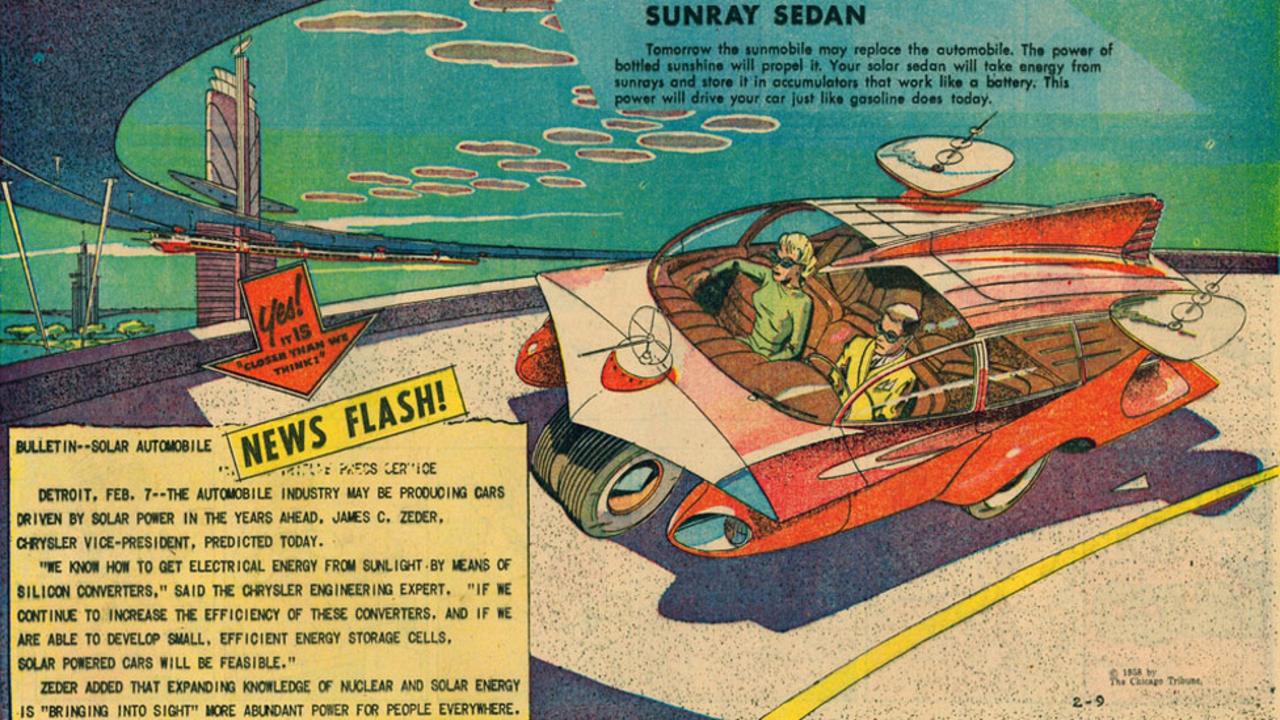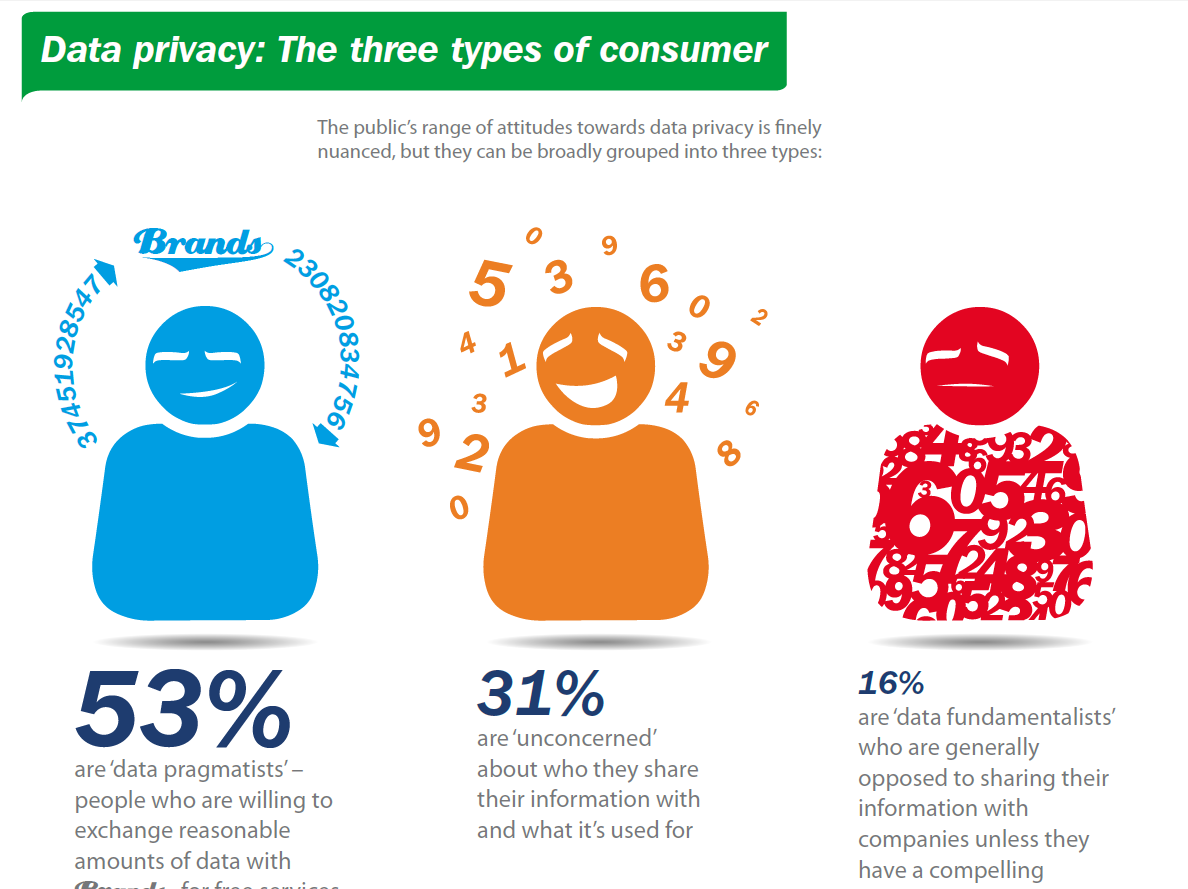
What will technology look like in five or ten years? And how would this impact mobile marketing?
Human behavior is primarily guided by needs. All of us are alive today because our ancestors found ways, against often improbable odds, to meet their needs.
Great thought leaders and innovators have always possessed a particular talent for foreseeing future needs, a talent only possible due to an ability to see beyond one’s immediate circumstance.
A key to such creativity is clarity: when our brains are bombarded with stimulus, we are unable to contemplate anything other than our immediate scenario. (Moments of quiet solitude are often the source of ideas, whether on a walk, a toilet, or in a bath.)
One such scenario is that of experiencing high stress and anxiety. When such difficulties dominate our thoughts, our thought process is unable to wander to brighter pastures.
Another scenario is that of media overload. When our brains are filled with technological stimulation, we have no need to dream our own dreams, or contemplate grand visions yet fathomed and heretofore unrealized, so we simply don’t.
They say necessity is the mother of all invention. If we’re not bored, we have no need to come up with our own way to have fun, for instance. And presently, most people constantly carry their very own super-computing boredom-(and by extension, idea-)killer.
It’s therefore a bit sad, if mildly humorous, to look back on previous generations’ predictions for our age:



Say what you want about these predictions and how ridiculous they look in retrospect. But the scope of their creativity is nothing if not admirable. And such a world seemed somehow more within our grasp back then, what with the burgeoning technology brought on by the Space Race. Now, beyond a couple of “eccentric” billionaires’ private escapades and some innocuous “Shark Tank”-grade trinkets, do we really see innovation?
For the most part, modern innovation takes the form of improving past innovations, like self-operating vacuum cleaners, and lights that turn on by voice command instead of flipping a switch. And of course, improving performance of mobile devices, including finding ways to scrape ever more data from user behavior.
Perhaps rather than discussing human motivation in terms of primary needs and secondary “wants,” we can better encapsulate all that motivates us in terms of incentives.
The trouble with those old drawings of the future is that ultimately, the incentive to create such a form of civilization is not readily apparent for most people. How does one quantify, for example, the positive impact and moralization of living in a brilliant and beautiful city, that strives above and beyond the checked-boxes of bottom-line efficiency and budgets? What specifically is gained?
Far easier to imagine, and therefore more tantalizing, would be improved performance and convenience of existing goods and services. Further elimination of struggle. Incrementally reduced friction due to incrementally less delayed gratification.
The Trade-Off
Per Newton’s Third Law of Motion, every action causes an equal and opposite reaction. This concept likewise applies to technology, insofar as no convenience comes without its consequence.
Based on the proliferation of “smart” technology, we’ve reached a point where the mere availability of goods and services isn’t enough, rather it’s the speed and effortlessness with which we’re supplied or served that counts.
Now that we’ve chosen to apply our finite technological ambition to petty conveniences instead of grander aspirations, we’re not only sacrificing future greatness, but present privacy. Naturally we also want our gratification at little or no cost, so we’re all too agreeable when it comes to subsidizing costs by surrendering our valuable data, or by trading it outright.

Per our textbook’s discussion of the “privacy paradox,” however, it appears we’re actually growing accustomed to devaluing our own data:
“The evidence the marketers provide . . . is that people often agree to share their information for little to nothing in return.”
Mobile Marketing Essentials, Stukent, Chapter 9, Section 1
To question the usage of our data itself, after all, would be a personal inconvenience.
Then again, some may actually encourage data firms selling information to marketers so as to sell us products we don’t even know we want yet.
Certainly these ongoing studies of our behavior and thought patterns are applied to projects such as Google Brain, though, and an even greater concept such as the Quantified Self. As I’m not a dualist I’m not morally offended by this concept’s implications, though I’d imagine I’m not the only one who’d harbor concerns regarding who might wield such data-driven power, and to what ends. Again, from our textbook:
“In these countries [like China or Russia], personal data is being used to socially engineer, control, and shape society.”
Mobile Marketing Essentials, Stukent, Chapter 9, Section 2
Consciously or not, we’re engaging in a constant trade-off (if not outright giveaway) as we continue to feed the insatiable data appetite of mobile marketing.
Conclusion
My prediction is that we’re in for a decade of decadence, because it’s what our civilization appears to desire above all. We want to Netflix-and-chill with such intensely painless sublimity that we’ll look back at these days and marvel at our naivete, as if we knew the meaning of Netflix-and-chill way back then!
We risk perpetuating a cycle of willfully providing personal data via mobile marketing, for the sake of ever instant-er gratification, further flooding our brains with higher stimulation, and reducing our dream capability to simply wanting more stimulation, faster and easier.
Per the textbook, fatalistically,
“For the mobile individual, there is no anonymity anymore. Mobile is nearly everywhere and knows nearly everything.”
Mobile Marketing Essentials, Stukent, Chapter 9, Section 1
Ultimately the technology wave we’re fanning will create endless mobile marketing opportunities, and can only crest in concert with the a heretofore endless human desire for convenience.
Such decadence is my prediction for the next decade. But what of the real trade-off? Bear in mind the word decadence not only refers to indulgence, but deterioration.
Reblogged this on Matthew t Day and commented:
I swear I don’t set out to write this heavy stuff! I just can’t seem to view it any other way.
LikeLike
I agree with your prediction that we are trending towards decadence and instant gratification. The pandemic has accelerated “instant” services and I feel this will set a precedent that will continue into the future. I enjoyed reading about your perspective on mobile privacy and the future of technology.
LikeLiked by 1 person
Wow! This was great and really got me thinking differently. You are absolutely right with human behavior constantly craving more needs and that is going to be what really determines the future of technology. It is going to keep expanding and growing to give instant gratification as you explained.
LikeLiked by 1 person
I really liked your perspective on this! I feel like most a ton of people are very desensitized to giving out their data because the threats don’t feel real. I don’t know anyone who has genuinely suffered because of the data they’ve given out. It feels like a “it’s not true until it happens to me” type of situation for a lot of people.
LikeLiked by 1 person